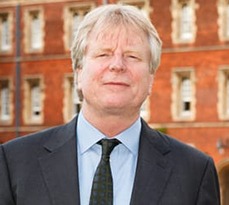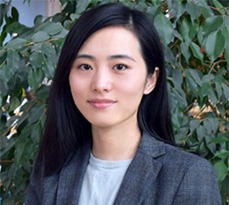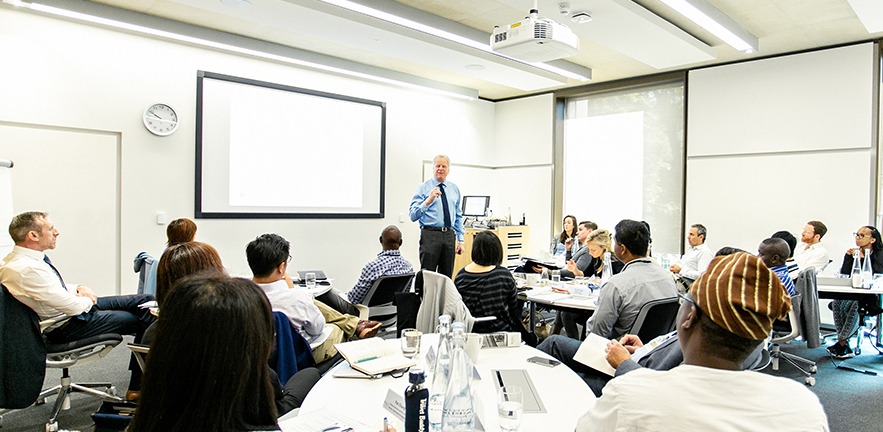Professor Jochen Runde reflects on his lengthy tenure as Academic Programme Director of the Cambridge General Management Programme (GMP), and successor Dr Shasha Lu points the way forward.
After 14 years as Academic Programme Director of the Cambridge General Management Programme (GMP) at Cambridge Judge Business School, Professor Jochen Runde recently oversaw his final cohort before handing over the role to successor Dr Shasha Lu.
The GMP has long been the flagship Executive Education programme at Cambridge Judge, attracting nearly 600 participants from around the world in 25 cohorts since 2008.
The General Management programme attracts a very diverse set of participants
In the pre-COVID period 2017 to 2019 alone, there were 161 participants from 42 countries, reflecting the programme’s geographical diversity. Yet the programme’s diversity hardly stops there: participants include representatives of a wide range of sectors, such as:
- pharmaceuticals
- energy
- government
- education
- finance
- media
- consumer goods
- hospitality
About 15 Cambridge Judge faculty teach on the GMP, including five faculty members teaching on the programme in 2022 for the first time. For many years Jochen has taught a module entitled “Thinking about the Unknown”, which focuses on improving decision-making.
What type of people does the GMP attract?
The two-week GMP attracts people seeking to move into new or more strategic jobs, or a general management role, but also appeals broadly to people with decades of C-level experience who seek to challenge their way of thinking or re-visit core business disciplines.
The final cohort under Jochen, Professor of Economics & Organisation, gathered in Cambridge from 26 June-8 July. The first cohort to be directed by Shasha, Associate Professor in Marketing, convenes in Cambridge on 23 October to 4 November.
Jochen Runde reflects on how the GMP has changed, and how it hasn’t changed, during his tenure, and Shasha Lu adds her thoughts on what lies ahead:
Professor Jochen Runde’s four reflections about the General Management Programme

- “The core pillars of the GMP remained much the same over the years, but new areas of focus have also become part of the programme. These core pillars include accounting, finance and marketing, and the new areas reflect developments in psychology and behavioural economics, sustainability and climate change, and EDI (equality, diversity, inclusion). Some of the new material was brought in by giving participants choice via elective subjects.”
- “We also introduced an optional wellness component some years ago, which reflects the increasing importance placed on mental health in today’s business world and beyond. This component is tailored especially for GMP participants, and combines physical and behavioural coaching with education and science. There’s a recognition that performing at a high level is demanding, and this can impact personal wellbeing.”
- “There have been many memorable moments from the GMP. One very special element is the tradition of every participant being given the opportunity, at our gala dinner at one of the Cambridge colleges on the final evening, to say a few words to the group; the warmth of feeling and the bonding between participants is always remarkable. I’ll also always remember the diversity of the participants in terms of seniority, nationality, geography and the roles they have in their organisations. We often had some remarkably senior people among the participants, including CEOs, who were invariably very generous in sharing their knowledge and experience.”
- “Leadership skills seem to differ more across roles than across organisations. Leading a startup full of young creatives who need freedom to experiment and take risks, for example, is likely to call for different leadership skills than leading a surgical or military team in which precision and discipline are paramount. Acute people-management skills are needed in both sorts of roles, but the focus is different.”
Dr Shasha Lu on the future of the General Management Programme

“Skills that will increasingly be taught in the future at the GMP include organisational behaviour and team management.
This includes building, aligning and leading effective teams, leading change and transformation in the post-digital era, driving business values through EDI, and personal leadership skills such as creativity, communication, and negotiation.”


